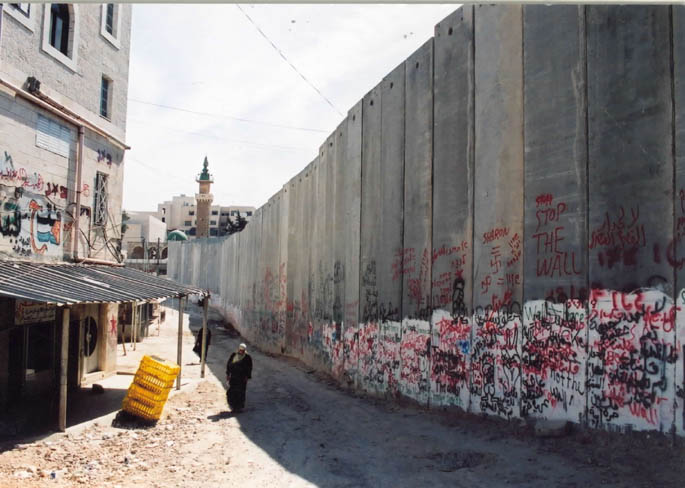ISRAEL’S military just after midnight on Friday admitted their responsibility for the death of a teenage girl in Gaza.
The announcement came following its insistence on Thursday that the girl’s death was the result of Palestinian friendly fire.
The teenager was killed and her brother injured by Israeli shelling in the area, medics told the Palestinian media moments after the incident.
Shortly thereafter, Israel’s military insisted it had nothing to do with the girl’s death, according to a spokesperson quoted in Israeli news reports, adding that its soldiers acted appropriately and professionally.
Nevertheless, just after midnight on Friday the Israeli news agency Ynet, quoting army officials, reported that a probe into the clash ultimately showed that the 17-year-old Palestinian girl was killed by the country’s military.
‘The debriefing continues and it’s too early to draw final conclusions,’ an Israeli military official reportedly told the news agency.
He added that the investigation revealed that ‘the Palestinian civilians were mistakenly hit by IDF (Israel Defense Forces) fire.’
After Israel’s military earlier denied responsibility for the incident, it placed the blame squarely on Palestinian fighters, who for their part insisted they did not possess weaponry capable of destroying an entire home, as happened on Thursday.
Hours before that, an Israeli military spokesperson said that no one on either side had even been injured in the cross-border incursion into the Gaza Strip, but soon backtracked on that claim late Thursday evening when the victim’s name was released.
Medical sources at the Al-Aqsa Hospital in the Gaza Strip identified the slain girl as Hiam Abu A’yesh, 17, and reported that her 24-year-old brother Husam was also injured by shrapnel from an Israeli shell that struck the family’s home in the Juhor Ad-Dik neighbourhood in the Strip.
Sources at the hospital in central Gaza added that more Palestinians were presumed to have been hurt in the attack, while other news reports placed the exact figure at 11.
Clashes between Israeli forces and Palestinian fighters had been reported earlier in the area on Thursday evening, and the Israeli military reported that it had ‘returned fire’ near the Nahal Oz border crossing, but had denied it used tank shells, which had previously been claimed.
Other Israeli reports quoted Palestinians as saying clashes had been witnessed at Bureij Refugee Camp, while exchanges of gunfire were also reported following an alleged attempt to detonate a roadside bomb near a military jeep travelling inside Gaza, according to Israel’s military.
No factions immediately claimed responsibility for involvement in Thursday’s clashes.
Meanwhile, the Israeli Housing Minister, Ariel Atias on Thursday warned against the growth of the country’s Palestinian minority, according to news reports.
‘I see it as a national duty to prevent the spread of a population that, to say the least, does not love the state of Israel,’ Atias said at an Israel Bar Association meeting, the Israeli newspaper Ha’aretz reported.
The official, a member of the religious right-wing Shas Party, was warning specifically against Palestinian citizens’ presence at a housing community built by Haredi Jews in northern Israel and in what he said should be Jewish-only neighbourhoods and cities.
‘If we go on like we have until now, we will lose the Galilee.
‘Populations that should not mix are spreading there.
‘I don’t think that it is appropriate for them to live together,’ Ha’aretz quoted the minister as saying.
‘Look at what happened in Acre,’ Atias said, in reference to riots that broke out between Jewish and Muslim youth earlier last year on the eve of the Jewish Yom Kippur holiday.
Atias added, ‘The mayor of Acre visited me yesterday for three hours and asked me how his town could be saved.’
‘He told me “bring a bunch of Haredis (right wing ultra orthodox religious Jews) and we’ll save the city, even if I lose my political standing”.’
The minister suggested as a solution to the problem that the Housing Ministry allocate more lands on which Palestinian citizens of Israel could build, saying, ‘I plan to market large amounts of land to the Arab population in Galilee in order to solve their problems, as well as land for secular and religious Jews.’
Atias also criticised non-segregation between religious and secular Jews inside Israel, saying, ‘There is a severe housing crisis among the young ultra-Orthodox couples, and in the general population.
‘I, as an ultra-Orthodox Jew, don’t think that religious Jews should have to live in the same neighbourhood as secular couples, so as to avoid unnecessary friction.’
The official’s comments came amid recent demands by Israeli Prime Minister Binyamin Netanyahu that Palestinians recognise Israel as a Jewish state.
The Palestinian Authority and the Palestine Liberation Organization have repeatedly rejected such recognition, saying it would endanger the rights of Israel’s Palestinian minority.
Palestinians who were not expelled from the land that became the state of Israel in 1948 were eventually granted citizenship and the right to vote, although they have complained for decades of state discrimination.
The Muslims and Christians, who in Hebrew are generally referred to as ‘Israeli Arabs,’ make up just over 20 per cent of the country’s population.
l The Krerm Shalom crossing was partly opened yesterday and all others will be closed, said Gaza crossings official Raed Fattouh on Friday.
Israel is expected to allow 57-67 truckloads of aid and commercial goods through points into the Strip, as well as 350 goats.
The week’s total is just over 500 truckloads of goods for 1.5 million Gazans.
